The Ethics of Kidney Sales: Legalization Debate in Bioethics
VerifiedAdded on 2022/09/09
|5
|1107
|28
Essay
AI Summary
This essay delves into the contentious bioethical debate surrounding the legalization of kidney sales in the United States. It begins by highlighting the prevalence of kidney disease and the need for transplants, setting the stage for the central question of whether the sale of kidneys should be permitted. The author presents arguments for and against legalization, discussing the historical context of kidney donation, the shortage of donors, and the rise of black-market activities. The essay explores the potential benefits of a regulated market, including fair compensation for donors and increased organ availability, while also addressing ethical concerns regarding exploitation and the commodification of the human body. References to the viewpoints of researchers and philosophers are also provided. The essay concludes by advocating for the legalization of kidney sales to improve patient outcomes and increase life expectancy for those with chronic kidney disease, emphasizing the need for a balanced approach that considers both the practical and ethical dimensions of organ donation and transplantation.
1 out of 5
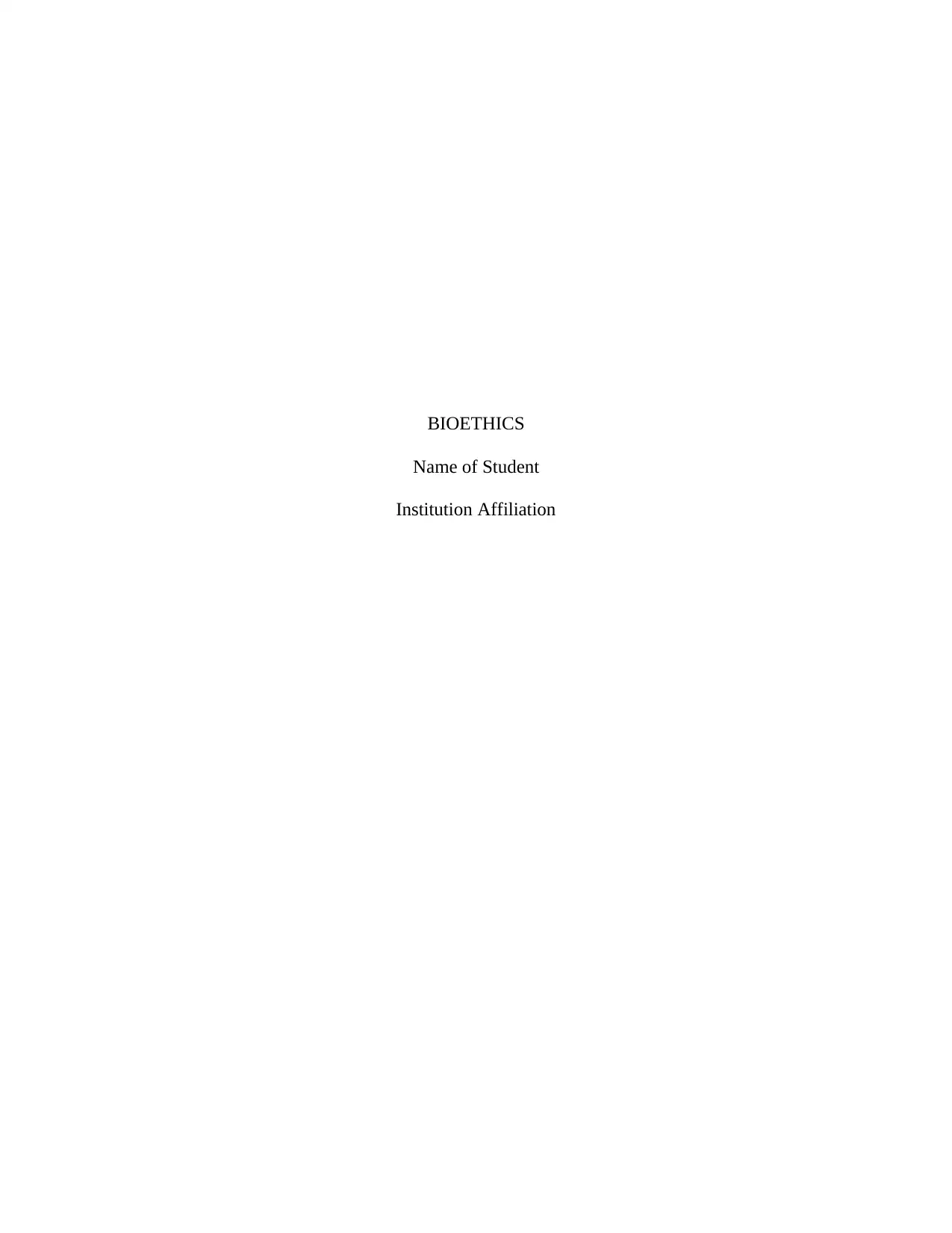
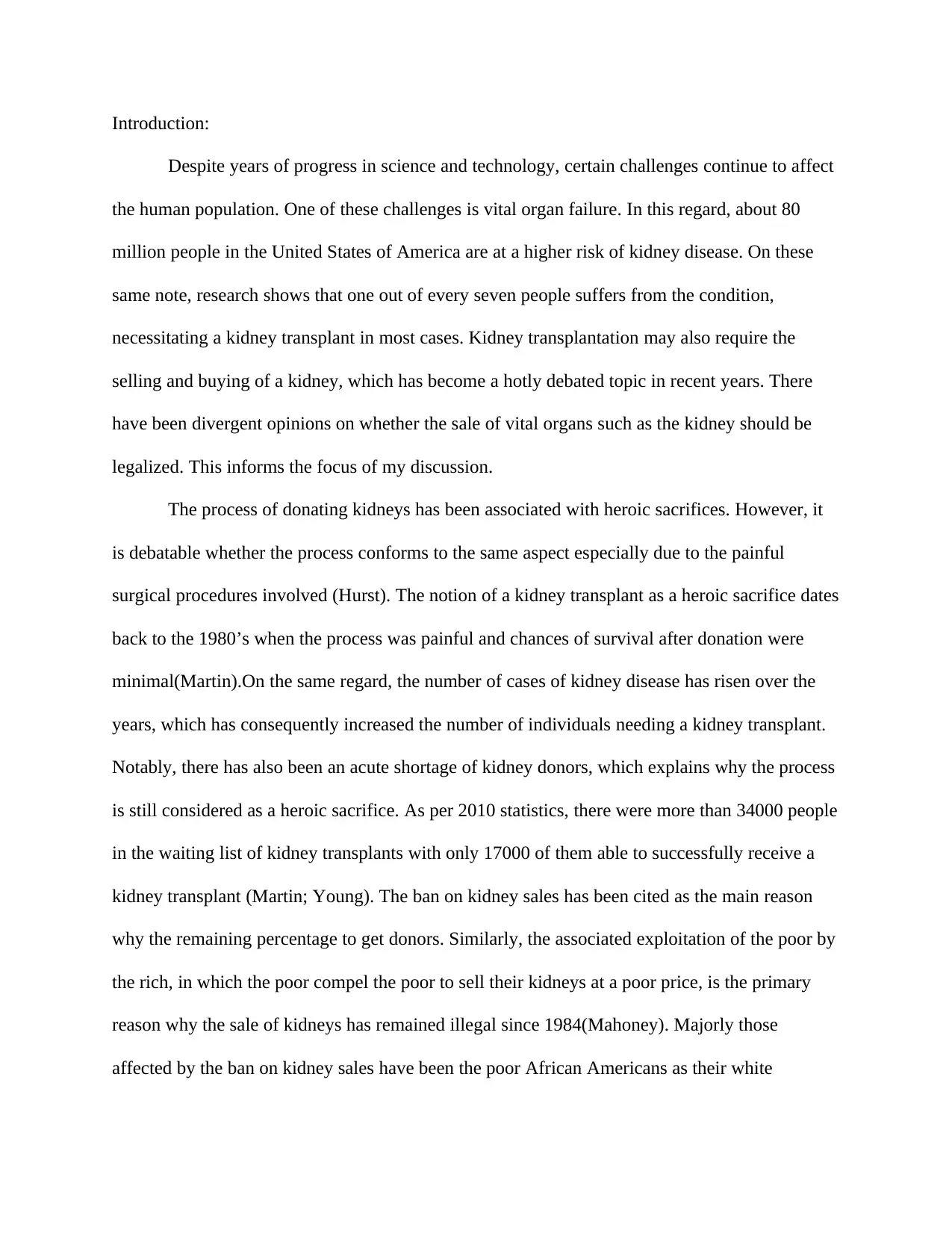
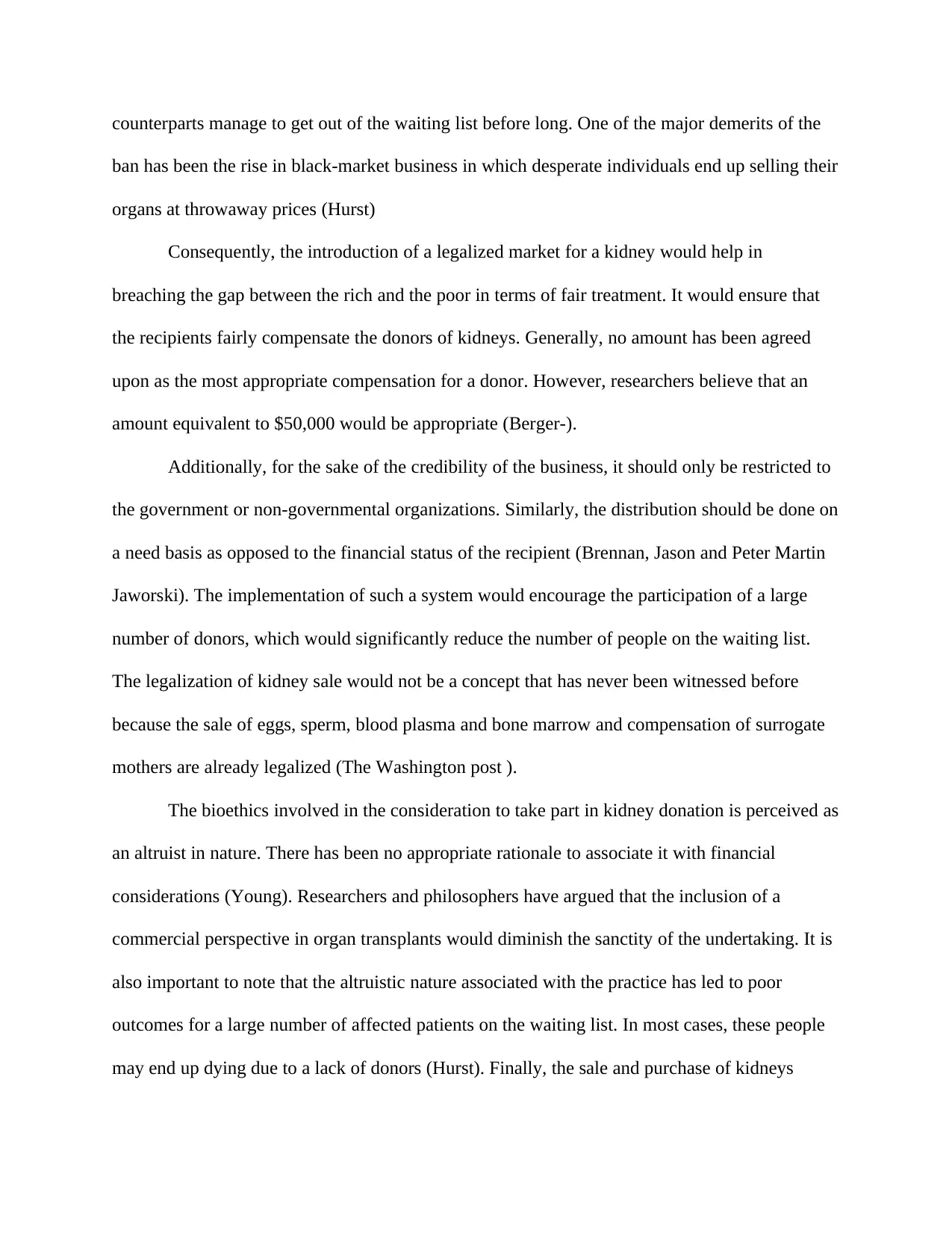

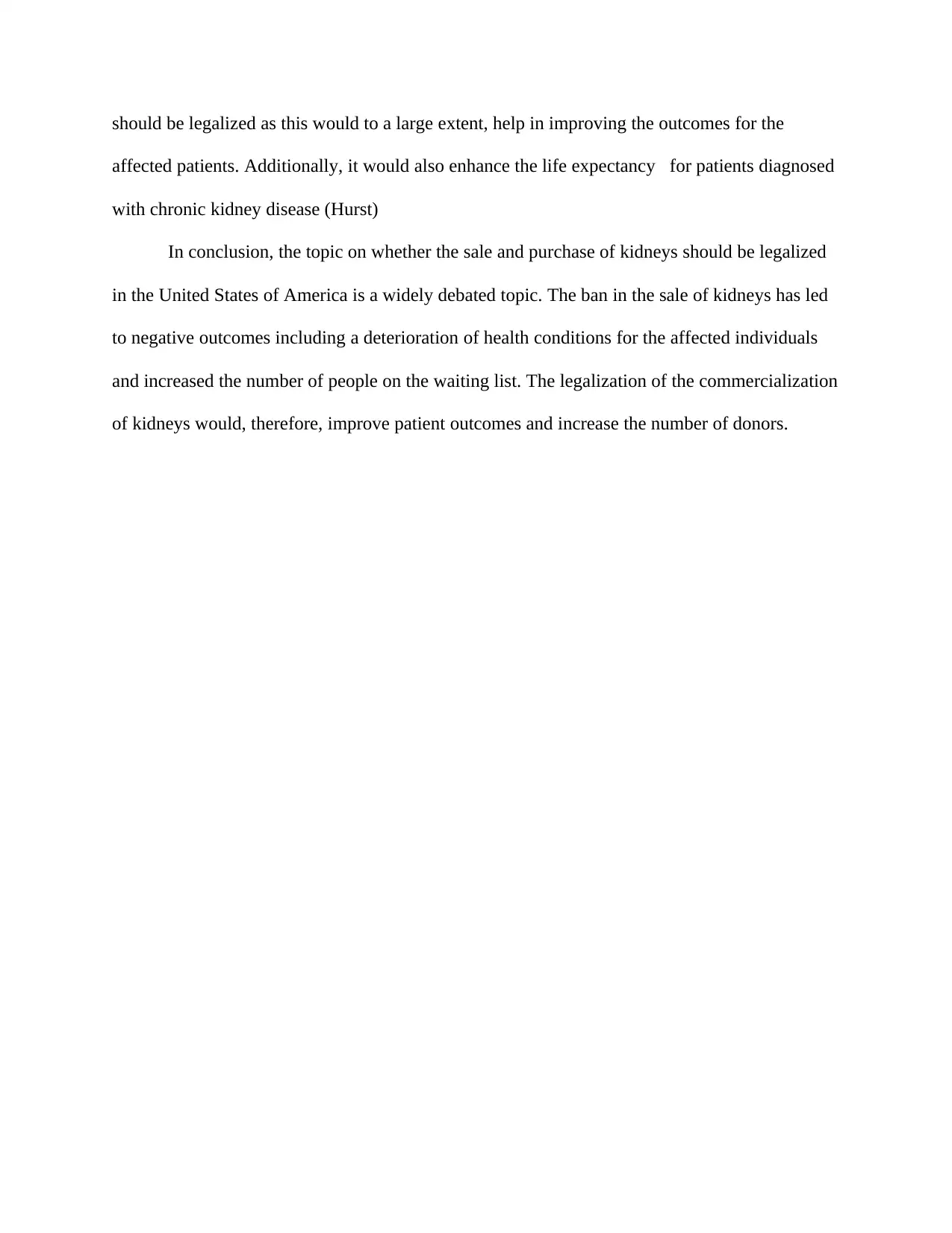
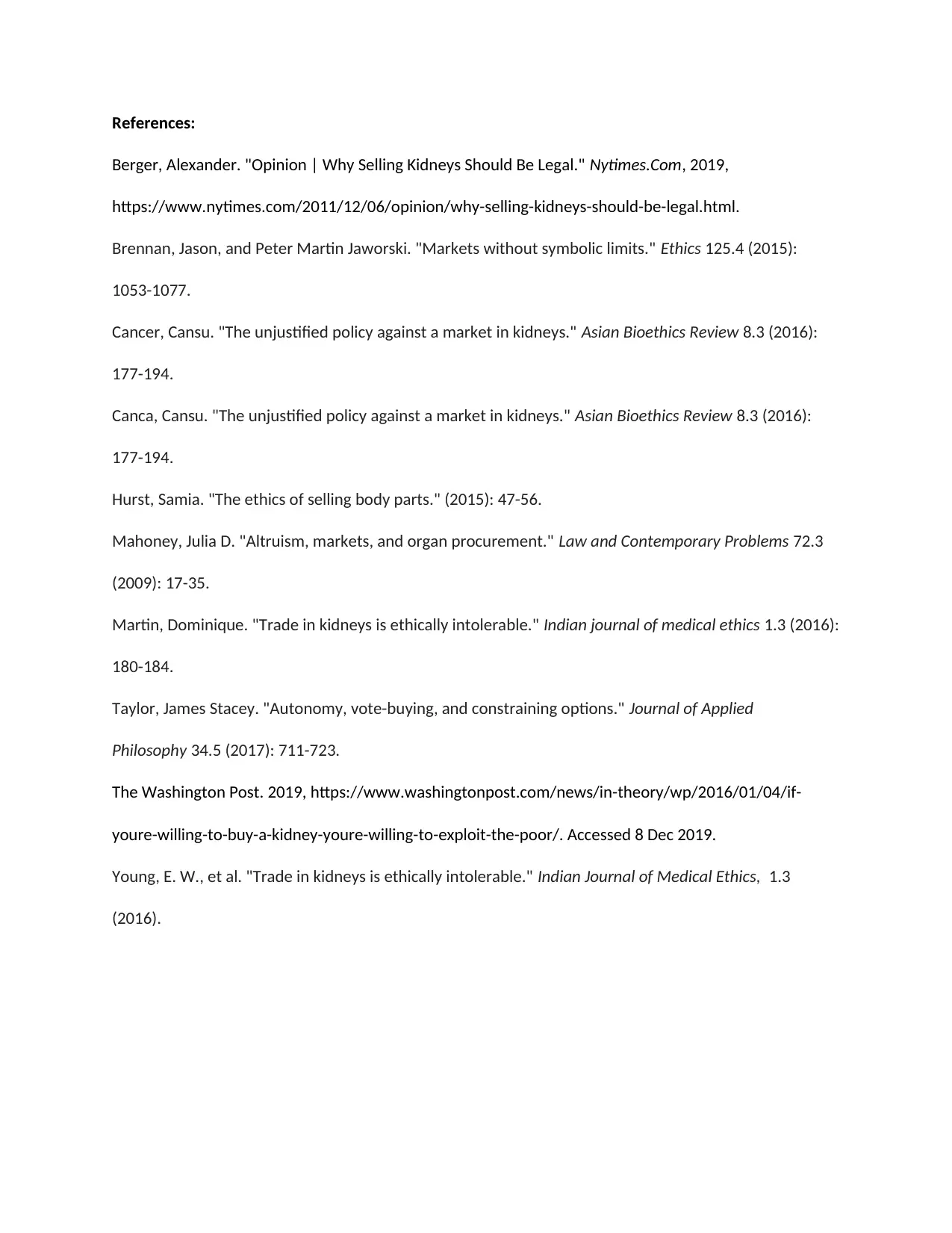



![[object Object]](/_next/static/media/star-bottom.7253800d.svg)